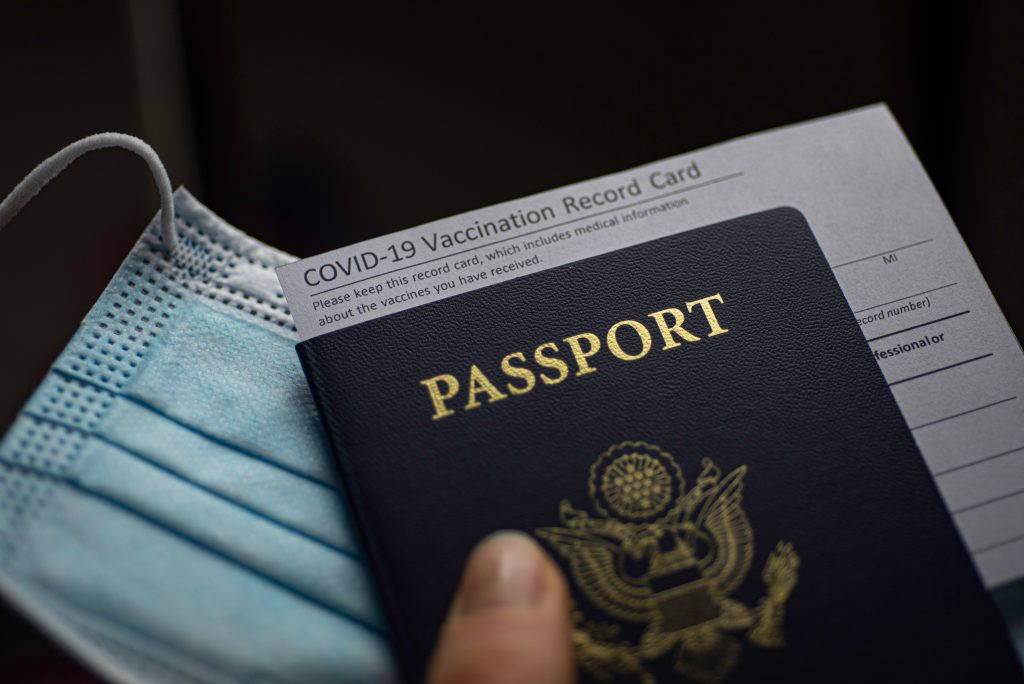
It is a policy that critics have denounced as “illogical and discriminatory” and now the British government is fighting to defend its new international rules that Transport Secretary Grant Shapps promised would be a “simpler, more straightforward system”. The system will come into force from October 4, finally allowing people to see their loved ones after 18-months of pandemic-induced travel restrictions.
The problem, which has even led to cries of racism or British Imperialism, is that under the new rules most foreign citizens trying to enter England won’t be considered fully vaccinated even if they’ve had the exact same vaccines from the likes of Pfizer or Moderna that are administered in Britain.

Fierce criticism of the new policy hasn’t been helped by the fact that Shapps has failed to explain why people in an initial list of 17 countries, plus the United States and much of Europe can prove their vaccination status, while everyone else will have to self-isolate isolating and take expensive COVID-19 statues irrespective of whether they’ve actually been jabbed.
The disparity has caused a huge amount of frustration and several diplomatic spats are brewing over the issue. Politicians in India, in particular, are vexed over England’s refusal to acknowledge the success of the country’s vaccination campaign using vaccines produced domestically – some of which were even donated to England to supercharge its own vaccine rollout.
From October 4, someone fully vaccinated with an approved vaccine in India will still have to take a COVID-19 test before departure, self-isolate for as long as 10 days on arrival and take two expensive COVID-19 tests on days two and eight after arrival. A third test is required for early release on day five of isolation.
At the heart of the issue, however, isn’t the quality of the vaccine (although England refuses to accept Chinese manufactured shots) but rather how proof of vaccination is presented.
“Our top priority is protecting the health of the public and these new measures will simplify the system and enable people to travel more freely again, in a safe and sustainable way, while managing risks to public health,” explains a government spokesperson when contacted for comment on the matter.
“We have always said we would take a phased approach to the rollout of our inbound vaccination programme to other countries and territories, building on the success of our pilot with the US and Europe,” a statement from the Department for Health and Social Care continued.
So why wasn’t India’s digital and QR code enabled vaccination certificate good enough for England while the U.S.’s handwritten CDC card is perfectly fine? Finally, further guidance has been provided.
At present, India’s vaccine certificate only shows someone’s age and not their date of birth. England, however, demands that a vaccine certificate displays a full date of birth, alongside forename and surname, vaccine brand and manufacturer, date of vaccination of every dose and the country or territory of the certificate issuer.
The United Arab Emirates (UAE) also found itself missed off the initial approved list because its vaccination certificate didn’t include the date of birth but officials quickly amended their vaccine certificate app and Shapps greenlighted the UAE’s inclusion soon after.
A similar change has just been implemented in Hong Kong with the hope that the certificate will be recognised by the time the travel rules change in early October.
Other countries may, however, have to wait. A government spokesperson says there aren’t any plans to add countries to the approved list as and when they make changes to their vaccination certificates. Instead, bureaucrats will “consider any additions” only once every three weeks.
What’s staggering, though, is that even with the knowledge that vaccination passports were on the horizon, intergovernmental agencies failed to agree on a standard for vaccination certificates.
We now face a situation in which, countries are refusing to accept someone’s vaccination because there is confusion over something as simple as proof of vaccination. The situation will no doubt get even more complicated when booster shots and jabs for infants become widespread.
Mateusz Maszczynski honed his skills as an international flight attendant at the most prominent airline in the Middle East and has been flying ever since... most recently for a well known European airline. Matt is passionate about the aviation industry and has become an expert in passenger experience and human-centric stories. Always keeping an ear close to the ground, Matt's industry insights, analysis and news coverage is frequently relied upon by some of the biggest names in journalism.








It’s not discriminatory to disallow citizens of other nations whose nations failed at providing vaccination documents that even appear to be verifiable. If US vaccination documents can be as prone to forgery as they are, I can just imagine how bad India’s are. So this makes sense.
One other thing that makes perfect sense is disallowing the Chinese vaccination. They are the ones who produced the virus, lied to the world about it, continue to lie to the world about cases in China, and now they have this alleged vaccine? This is a nation that cannot (and should not) be believed about anything.
India’s vaccination documentation is vastly superior and less prone to frogery than the USA because the vaccination is tied to the resident’s national ID which has the resident’s biometric data such as fingerprints and retina scans. It is not possible to get a vaccine in India (aka no fake cards like the USA) without you already having a biometric-registered National ID that has to be used to get the vaccine.